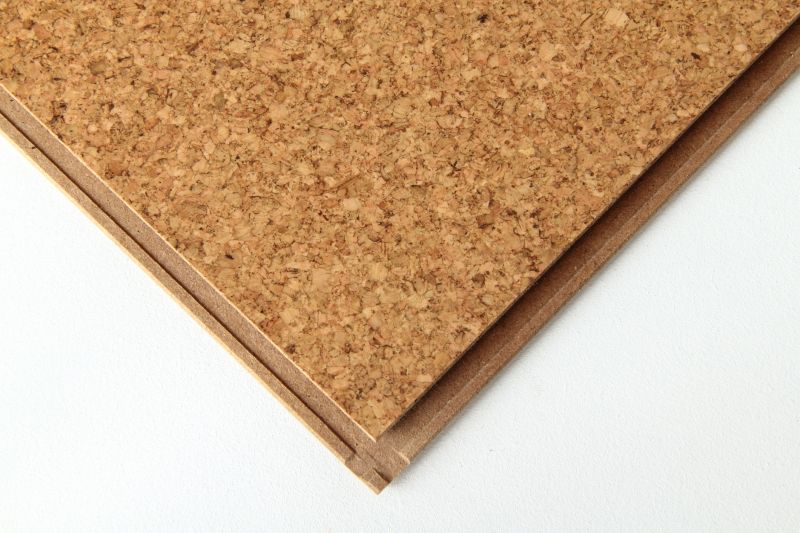Leading Cork Floor Installation Tools and Materials
A comprehensive guide to the top-rated products needed for efficient and high-quality cork floor installation.
 Installing cork flooring requires a combination of the right products to ensure a durable, attractive, and long-lasting surface. From underlayments that provide stability and insulation to adhesives that secure the cork planks, selecting quality materials is essential for a successful installation. Proper preparation and the right tools can help achieve a professional-looking result, whether you're undertaking a small renovation or a full-floor upgrade.
Installing cork flooring requires a combination of the right products to ensure a durable, attractive, and long-lasting surface. From underlayments that provide stability and insulation to adhesives that secure the cork planks, selecting quality materials is essential for a successful installation. Proper preparation and the right tools can help achieve a professional-looking result, whether you're undertaking a small renovation or a full-floor upgrade.
Top Overall Option
Premium Cork Flooring Adhesive
A high-quality adhesive designed specifically for cork flooring installations offers excellent bonding strength, flexibility, and ease of application. It ensures secure adhesion even in areas with slight movement or temperature variations, helping to maintain the integrity of the floor over time.
Types of Products For Cork Floor Installations
Cork Flooring Underlayment
Provides a stable, level base that enhances comfort and reduces noise transmission beneath cork floors.
Moisture Barrier Sheets
Protects cork flooring from moisture infiltration, especially in basements or areas prone to humidity.
Cork Flooring Adhesives
Specialized glues formulated for bonding cork planks securely to subfloors.
Floor Leveling Compound
Used to smooth out uneven subfloors before installation for a flat, uniform surface.
Sealants and Topcoats
Protects cork floors from stains and wear while enhancing appearance.
Installation Spacers
Ensure consistent gaps around the perimeter for expansion and contraction.
Rolling Tools
Help to evenly press down cork planks and remove air pockets during installation.
Trimming and Cutting Tools
Assist in precise cutting and fitting of cork planks around edges and corners.
Acoustic Underlayment
Reduces sound transmission and adds comfort underfoot.
Edge Sealers
Seal the edges of cork planks to prevent moisture ingress and damage.
Cleaning and Preparation Products
Ensure the subfloor is free of dust and debris before installation.
Transition Strips
Provide a clean transition between cork flooring and other flooring types.
Expansion Gaskets
Allow for natural expansion and contraction of cork floors over time.
Self-Adhesive Cork Tiles
Convenient for DIY projects, these tiles come with adhesive backing for easy installation.
Popular Choices
Widely used for creating a cushioned, noise-reducing layer beneath cork floors.
Trusted for its strong bonding capabilities and ease of use during installation.
Popular for protecting cork floors in moisture-prone areas.
Commonly chosen to enhance durability and stain resistance of cork surfaces.
Favored for quick DIY projects and easy installation without additional adhesives.
Frequently used to prepare uneven subfloors for cork installation.
Popular for reducing noise and improving comfort in residential spaces.
Chosen to protect edges from moisture and damage during installation.
Commonly used to achieve smooth transitions between different flooring surfaces.
Popular for precise cuts and fitting around irregular spaces.
Help maintain proper gaps for expansion and contraction in cork floors.
Essential for preparing the subfloor to ensure proper adhesion and finish.
Cork flooring is appreciated for its comfort and acoustic properties, making it a popular choice for residential spaces. To maximize these benefits, it's important to choose products that complement the specific type of cork flooring being installed. Moisture barriers, leveling compounds, and underlayments can help create an even, stable foundation, reducing the risk of future issues such as warping or uneven surfaces.
Additionally, finishing products like sealants and topcoats can enhance the appearance and longevity of cork floors. These products protect against spills, stains, and daily wear, maintaining the floor's aesthetic appeal over time. Careful selection of tools and accessories, including spacers, rollers, and trimming tools, can facilitate a smoother installation process and a cleaner finished look.
Overall, a well-planned approach with the right products can help achieve a professional result, ensuring that your cork flooring remains beautiful and functional for years to come. Whether you're a DIY enthusiast or hiring a professional, understanding the options available can make the installation process more manageable and satisfying.
Key Buying Considerations
- Compatibility with cork flooring type and subfloor material
- Moisture resistance features, especially for below-grade installations
- Ease of application and drying time of adhesives and sealants
- Durability and wear resistance of protective coatings
- Acoustic properties and how they align with your needs
- Flexibility and expansion allowances to accommodate temperature changes
- Environmental conditions of the installation area, such as humidity levels
- Compatibility of underlayment with insulation and soundproofing needs
- Ease of removal or replacement of products if needed in the future
- Brand reputation and product reviews for reliability
- Availability of accessories like transition strips and edge sealers
- Cost considerations balanced with product quality
- Preparation requirements for subfloor before installation
- Compatibility with existing flooring transitions and thresholds
- Long-term maintenance and cleaning requirements
